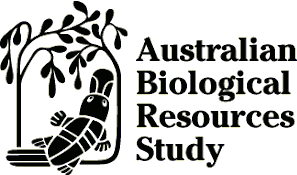Australian Tropical Rainforest Plants - Online edition
Aglaia australiensis Pannell
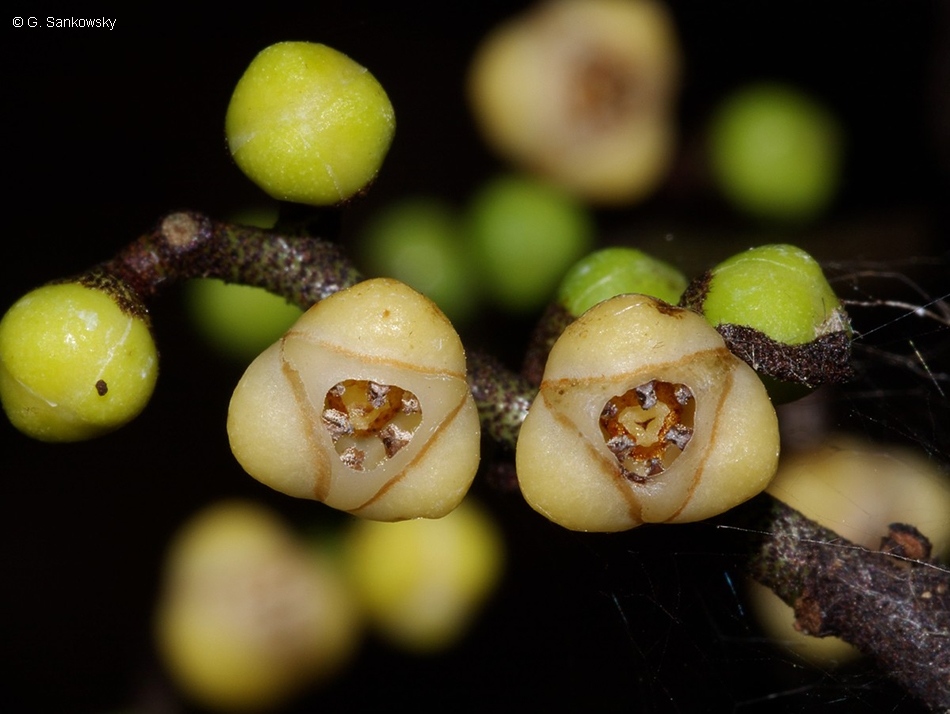
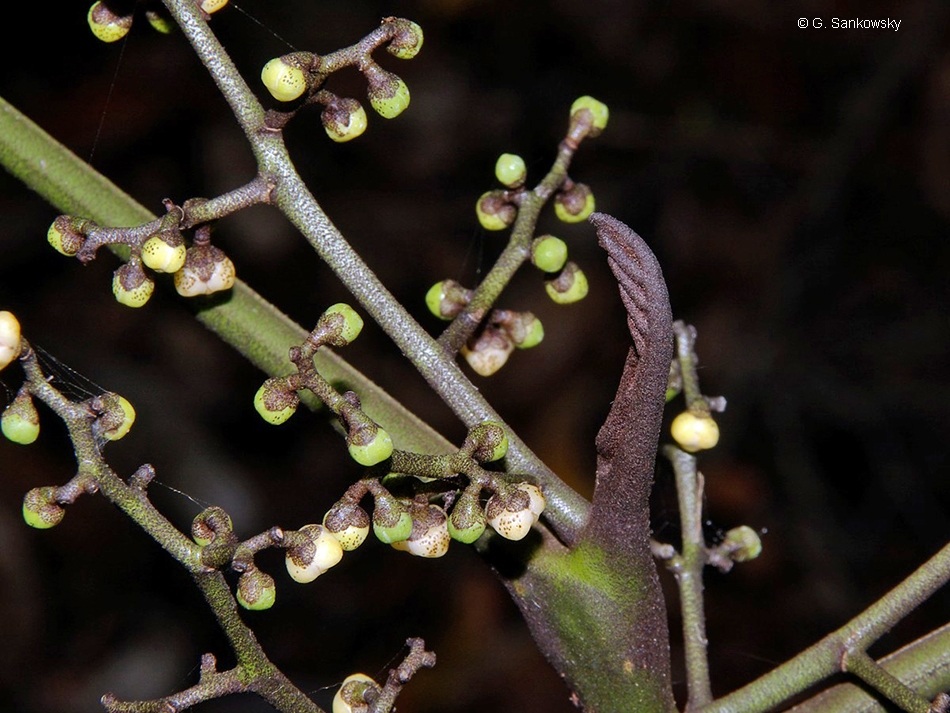
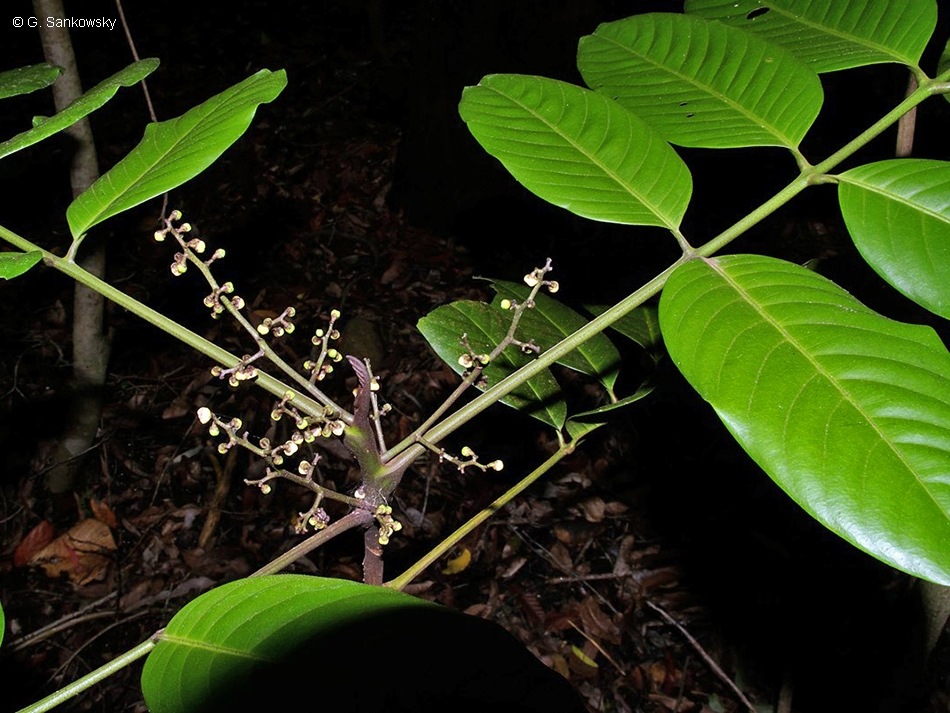
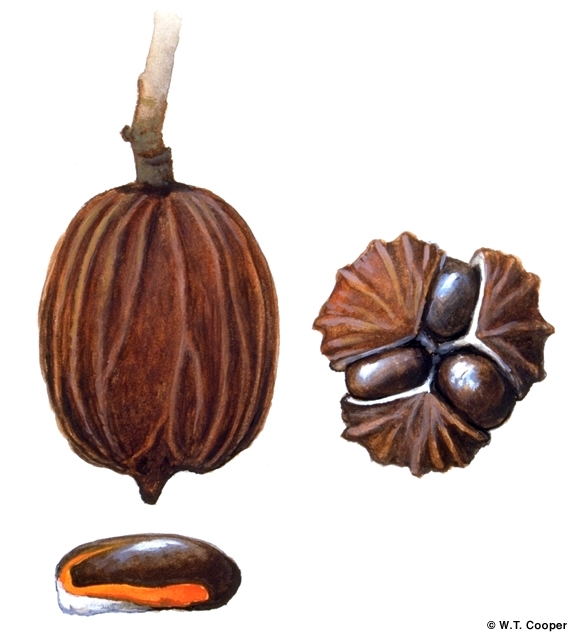

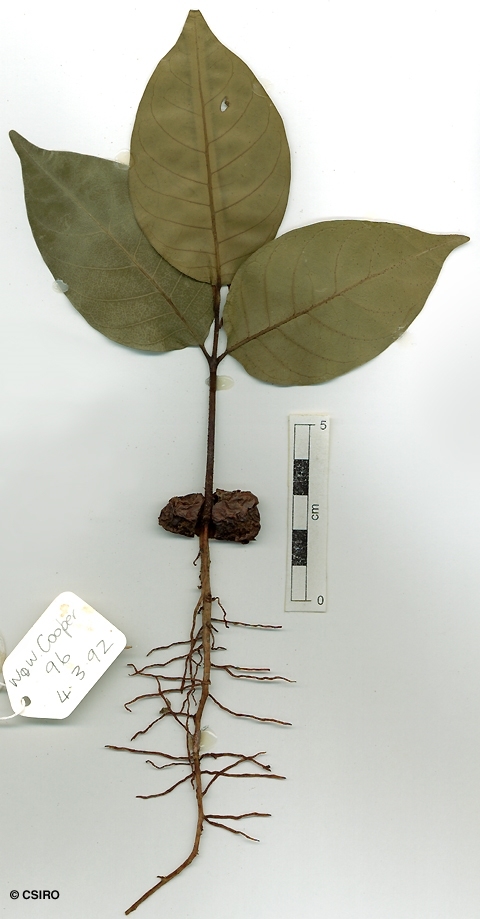
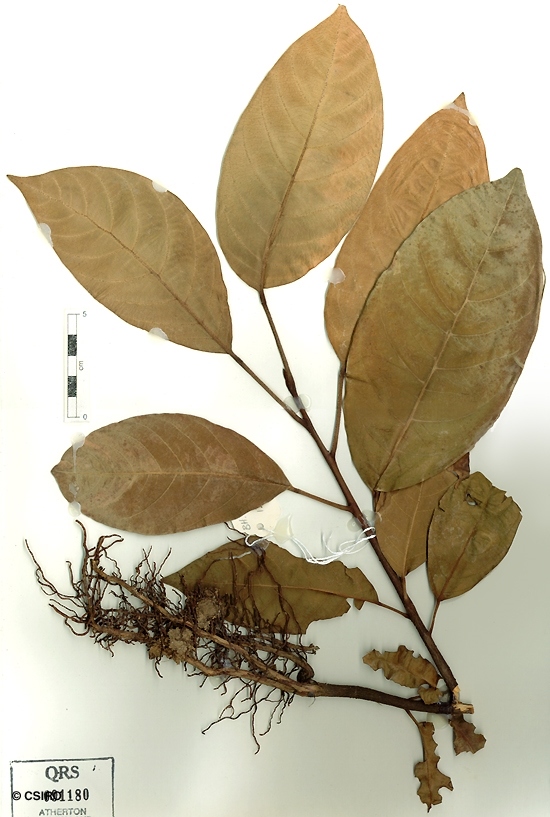
Pannell, C.M. (1992) Kew Bulletin Additional Series 16: 63. Type: Qld, Boonjie, near Malanda, 12 Aug. 1947, L. S. Smith 3274; holo: BRI; iso: CANB, K, L.
Brown Ripples
Seldom exceeding 30 cm dbh.
Freshly broken twigs produce a meagre milky exudate. Scattered to numerous peltate scales visible with a lens or to the naked eye on the underside of the leaflet blade. Compound leaf petiole swollen at its junction with the twig. Leaflets rather large, about 13-20 x 5-7 cm, leaflet stalks about 1.5 cm long. Lateral veins about 8-15 on each side of the midrib. Leaflets about 9-11 per compound leaf. Terminal buds and young shoots densely clothed in dark brown peltate scales. Brown or rusty brown lenticels usually conspicuous on the twigs.
Inflorescence branches clothed in brown peltate scales. Calyx about 5-6 mm diam. Petals about 4 x 5 mm. Outer surface of the calyx and petals densely clothed in ferruginous peltate scales. Stamens about 6 per flower. Anthers about 2 mm long. Ovary completely clothed in peltate scales.
Fruit about 31 x 23 mm, ellipsoid to pyriform, dark burnt orange to brown when ripe, longitudinally wrinkled and densely clothed in ferruginous peltate scales. Inner surface of capsule white or pink. Seeds 1-3 per fruit, each seed about 21-28 x 20-21 mm, completely enveloped by the aril. Testa thin. Radicle short and straight.
First pair of leaves about 5-8 cm long, sparsely scattered peltate scales with fimbriate margins visible on the underside. At the tenth leaf stage: leaf blade underside clothed in brown peltate scales with fimbriate margins; petiole exudate meagre, milky or watery. Terminal bud and stem clothed in ferruginous, brown, peltate scales with fimbriate margins. The transition from simple to compound leaves occurs at about the tenth leaf seedling stage. Seed germination time 9 to 56 days.
Endemic to NEQ, occurs in the area between the Atherton Tableland and Tully. Altitudinal range from sea level to 850 m. Grows as an understory tree in well developed rain forest on a variety of sites.




